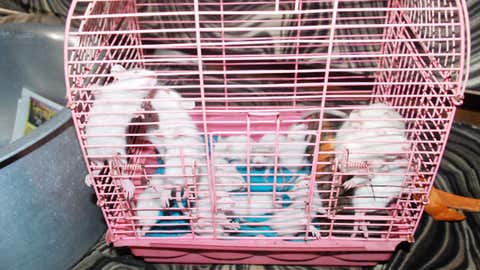Blood
Scientists Have De-Aged Older Mice Through Infusion of Blood from Younger Mice!

Representational image
(K.C. Singh/BCCL Mumbai)
There it is again, folks, science has once again taken a page straight out of fantasy books. In true vampire-esque fashion, researchers have managed to steal years off of younger mice and present it to their older friends, rejuvenating them significantly.
If you’re imagining some spooky blood ritual, we’re afraid it’s a tinge more scientific than that — although it does involve the circulatory system!
The experiment involved connecting the circulatory systems of young (three months old) and older (around two years old) mice for 12 weeks, somewhat simulating conditions for a blood transfusion among these animals.
There’s obviously a reason other than forcing these mice into a gruelling and time-consuming blood pact. Previous research had suggested that the very composition of young mammalian blood might be enriched with certain components that contribute to anti-ageing health benefits.
While we don’t yet know exactly what these Lazarus-like components are yet, this experiment provides evidence that they do, in fact, exist. After three months of blood sharing, biological markers showed that the older mice’s lifespan had increased by as much as a whopping 10%!
The older mice vampiring the young blood also had higher levels of crucial compounds used in bodily regulations, reduced inflammation and greater expression of genes associated with a longer life. Several chemical processes which are typically interrupted by ageing also restarted in the mice, the tests indicated.
What’s interesting is that while the elderly got sprier, the younguns lost out on valuable years in the process. The procedure effectively sapped lifespan out of the young mice, and the researchers think that the exchange of entire cells might have caused these ageing changes. However, while the positive impacts persisted in the elderly mice, there was no evidence that the actual transplanted younger cells lingered in their bodies over time.
The logical next step would be to test whether these same results are replicable for humans. Will we be able to donate part of our time to older people in true ‘In Time’ fashion? Experts think not.
The obvious debatable ethics of donation aside, there is simply too large a leap in complexity from mouse to human for these findings to scale up as is. Furthermore, three months in mice equates up to eight years in human beings, clearly far too long to be connected to your blood partner.
However, determining what cardiovascular components determine these almost magic-like benefits could be a significant step towards human health, and are definitely worth further researching into.
The findings of this research have been published in Nature Aging and can be accessed here.
**
For weather, science, space, and COVID-19 updates on the go, download The Weather Channel App (on Android and iOS store). It’s free!

